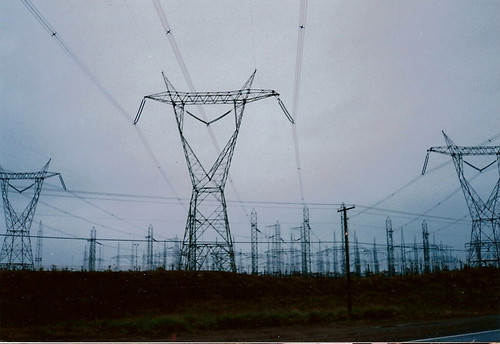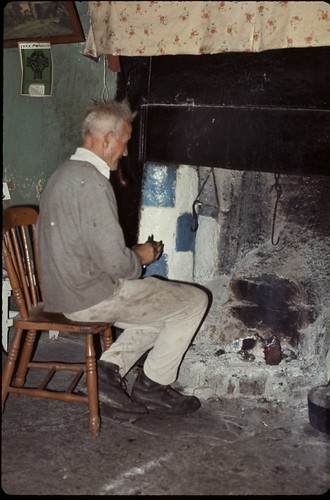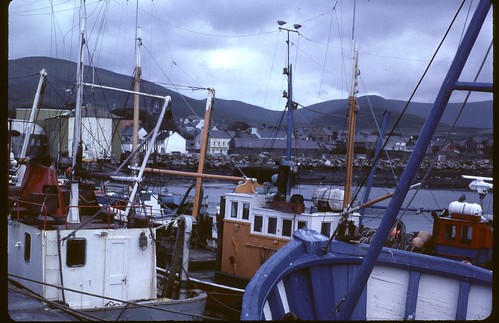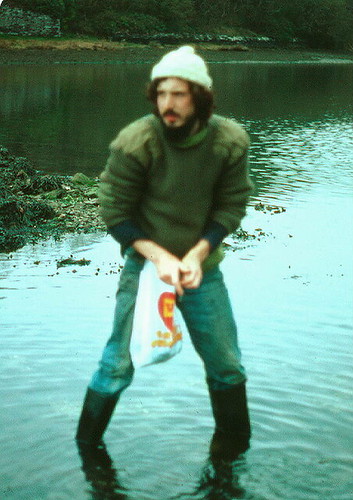Are We Quakers a Community of Communion or Consumption?
What makes a Quaker Meeting a Quaker community? For some, it is meeting for an hour or so a week in a little silence and some chatter about liberal ideals or new age notions of spirit. Once that is accomplished the Meeting can get down to business like the rest of America in what has been called with humor but no irony, "the latter days of Babylon."
But where do we begin? Let's begin at the theological beginning ... shall it be the latter part of Exodus or the beginning of Genesis. We are, after all, one of the many streams which trickle down from the spring of Judaism. Starting with Genesis, Adam and Eve are told not to eat of the tree of wisdom, as it is against God's plan, or breaks God's rule, depending if one is a student of Hillel or Shamai. I would say a student of Hillel would say that is separates Adam and Eve from God, and in not cooperating - not being in unity with God's plan, it is an act of consumption, not an act of communion.
In the latter part of Exodus, a people who see their early history as one of enslavement commit acts of conquest and out right genocide in the name of God. How does one go forward after that with a sense of rightiousness? Well, one lays the responsibility for the orders on God... and tries to do better in the future... possibly. This seems to me to be a cheep short answer, but at 3 AM, it is the best I can do... to begin to get at do nothing to another which is abhorrent to thyself... a statement of communion rather than consumption.
I spent time among hunter/gatherer people in the far north east of Canada. There the difference between communion and consumption was rather profoundly visible. Innu hunters never cut trees in a straight line, the sin of having to take trees was mitigated by doing so in a way which preserved Nitassinan, the land. There was no sport hunting, hunting was a communion with the caribou, the seals, the salmon, the geese, the porcupines, the moose and when the equation went the other way, the protective spirit, the bear took you to your safe afterlife.

Innu fishers "poaching" on their own land which they would share and others would take. Photo Lorcan Otway 1994
Over the years I watched the coming of the dams, and in their wake, drugs, alcohol, freedom from the work of production of consumption commodities became unemployment, cut off, and bought off from the traditions of communion living. I watched the march of poverty and consumption north and east devouring the souls of people as well as the land.

Power lines from Hydro dams built along rivers vital to Innu hunting Photo Lorcan Otway 1994
I had seen it before. Living in the west of Ireland in the seventies, people spoke of the coming of poverty to Ireland. The generation just before had no consumer products and felt itself complete and fulfilled.

Tommy Gibbons - Irish Small Farmer 1977 Photo Lorcan Otway
The generation of the seventies felt the sting of third world poverty. There were still coops, and resistance to the promise of wealth through common market ... but I watched as salmon fishers became salmon poachers and up north and across the Irish sea, Scotland fisher folk had their boats ordered up to Scandinavia to be broken up and consumed along with great chunks of traditional culture, but the consumer culture of the common market.

Ireland 1978 Photo Lorcan Otway
Now, here I am. One of a few voices asking Friends to consider what it is to have a Quaker school, a Quaker meeting. I am met with a chorus of voices which chant the liberal agendas of the school associated with our Meeting, voices which never give an answer how it can be a Friend's school and exclude children from our Meeting who are judged not to be intelligent enough to go to a Quaker school. Since when do we only call the clever children in our Meetings "Quaker?" And in all of this, the school, where it is hard to find a Quaker in the faculty or the student body, consumes more and more of the physical space of our Meeting's property, and as happened among the Innu and among fisher folk in Ireland and Scotland, consumed the soul of our people at the same time.

Living off the land in Ireland - a harvest of communion 1978 Photo Eugenie Clare Gilmore-Otway
We may as well be corporately owned by Pepsi and sold in oatmeal boxes, I suppose.


1 Comments:
I have often asked myself if "Quaker Institution" isn't an oxymoron. Your reference to Friends schools and their relationships to Friends Meetings stirred up some feelings that I have dealt with for 30 years. I became a faculty member of a Friends school occupying a "Chair in Faith and Practice." Somewhat unexpected for a PhD in Science Education who had worked in science education in public high schools until I was no longer able to teach since a PhD was too expensive. I became very closely involved in the local Meeting (even Clerk of Ministry and Worship) but after six years left, largely due to the Head constantly referring to the school as First a Business and secondly a school which, by the way, is somehow connected to Friends. Success usually meant taking the "best" students and getting them into the best schools. I once had a prospective KINDERGARTEN parent ask me if the school would get his child into an Ivy League school. The parent was serious, but even more disturbing was that many at the school found the question quite appropriate.
At another Friends schools I was found to offer nothing to the school because I was "too Quakerly," listened to others before making decisions, respected individual differences too much, etc.
I have always felt that a Friends School should accept students, especially those from "Friends' families" or those with similar goals, for what the individual was and then to provide as much assistance in the growth of that child as possible measuring the "success" of the child, and thereby the school, by the progress made in becoming an individual who could ask good questions and could learn how to find the answers for themselves with rspect to the gifts that each individual had been given.
To me this is much more a community of communion in seeking truth rather than a community of consumption of "facts or prescribed answers."
A Quaker institution which has as its main goal the preservation of its reputation or success by the world's standards certainly seems to be self contradictory.
Post a Comment
<< Home